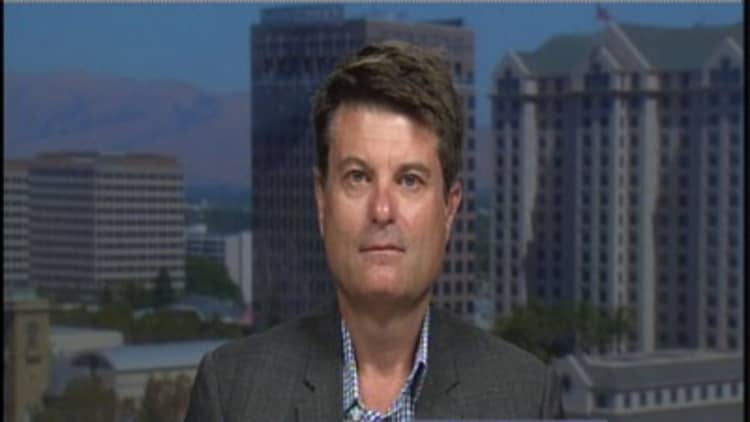
Whether computers break down or are broken into, chaos often follows.
A month ago, on July 8, all trading on the New York Stock Exchange was halted for three hours. Virtually at the same time, United Airlines grounded all flights worldwide for two hours. Although many feared hackers could be the culprits, both events were blamed on computer glitches.
In an interview with CNBC, Massachusetts Institute of Technology professor Andrew McAfee says while people were right to worry about data security, people shouldn't always fear skulduggery—even in a turbulent and hack-prone world.
"Let's not get carried away," McAfee—co-founder of MIT's Initiative on the Digital Economy—told "On the Money." He added that "complex interdependent systems fail. They always have and they will continue to do that."
Yet there is little doubt that hacking fears are justified, with data theft increasing and breaches multiplying. According to digital security firm Gemalto, 1 billion data records were stolen in 1,500 attacks in 2014. That's a 78 percent increase in the number of records compromised from the previous year. Meanwhile, a recent study estimated that hacking costs at least $375 billion a year.
McAfee, however, said it is part of the trade-off between convenience and data security. He said that you "can't make a completely reliable computer system. These crashes are the price we pay for having these systems. I think that's a price worth paying."
System failures 'inevitable'
Martin Ford, author of "Rise of the Robots," tells CNBC the underlying cause of these tech failures is the "tremendous increase in complexity and interdependence, and that means more potential failures."
Ford also says it's about the computers talking to each other. "If one thing goes wrong, the whole thing is threatened. The complexities of these systems go beyond where one human being could understand it."
As the systems vital to digital infrastructure can fail and paralyze financial markets or nationwide transportation, can anything be done to make interconnected computers more reliable, or less vulnerable to hackers? According to Cisco, connected devices on the "Internet of Things" now outnumber the world's population by 1.5 to 1.
Read MoreNext frontier for 'Internet of Things': Babies
That exponential growth—amid what the World Economic Forum estimates will be 50 billion networked devices connected to the Internet by 2020—"also means more avenues for hacking. I think this is inevitable," Ford said.
"Our systems are going to get more and more complex, [and] we're going to have more connections," he added.
For his part, MIT's McAfee said that companies are "getting better at building these things. So they fail less often and when they do, they're less catastrophic."
'Killer robots not on my radar'
Ford, who founded a Silicon Valley software development firm, said to make technology more reliable, we need to "build more artificial intelligence (AI) into these complex systems. We're going to make these systems smarter, more capable so they can diagnose and protect themselves," Ford added. "That's really going to be the only viable solution to this issue."
Yet smarter computers are alarming to prominent technophiles like Tesla founder Elon Musk, physicist Stephen Hawking and even Microsoft founder Bill Gates. Recently, both Musk and Hawking were among those warning about the dangers of AI, saying it poses a "threat to mankind."
They're specifically concerned that advances in AI development could create "killer robots" and other autonomous weapons..
McAfee, however, dismissed those concerns. "Killer robots are far down on my list," he joked. "It doesn't keep me up at night."
Fears about autonomous machines are growing more acute as technology advances, yet McAfee insisted that "we have a lot of time ahead of us before that becomes even a realistic threat."
Basically, life won't imitate Hollywood threats, he said.
"I think that's really getting ahead of ourselves, given the challenges we have on the ground today, to start worrying about superstrong AI and 'The Terminator' or 'The Matrix' scenario for the future," McAfee added.
—"On the Money" airs on CNBC Sundays at 7:30 p.m., or check listings for airtimes in local markets.





